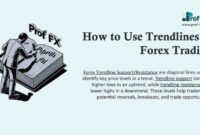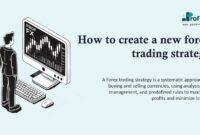The Australian dollar (AUD) is considered to be a major currency in the Forex market. It is also one of the “commodity” currencies because of the Australian economy’s dependence on commodity exports.
Australia is the world’s seventeenth largest economy.
Does Your Economy Run a Trade Surplus or a Trade Deficit?
Australia runs a trade deficit of $35.23 billion, giving the country a ranking of 182 out of the 190 countries tracked by the CIA in The World Factbook.
What Does Your Economy Export?
Australia exports coal, iron ore, gold, meat, wool, alumina, wheat, machinery, and transport equipment.
According to the World Trade Organization (WTO), Australia exports $154.2 billion in goods and merchandise compared to only $41.2 billion in commercial services. The WTO breaks down those exports as follows:
Goods and Merchandise
- Agricultural products: 15.2 percent
- Fuels and mining products: 56.8 percent
- Manufactures: 14.9 percent
Commercial Services
- Transportation: 12.5 percent
- Travel: 62.8 percent
- Other commercial services: 24.6 percent
To Whom Does Your Economy Export?
The WTO ranks the following countries as the top destinations for exports from Australia:
- China: 21.6 percent
- Japan: 19.5 percent
- European Union: 8.7 percent
- South Korea: 8.0 percent
- India: 7.4 percent
What Does Your Economy Import?
Australia imports machinery and transport equipment, computers and office machines, telecommunication equipment and parts, crude oil, and petroleum products.
According to the WTO, the country imports $165.5 billion in goods and merchandise compared to only $41.4 billion in commercial services. The WTO breaks down those imports as follows:
Goods and Merchandise
- Agricultural products: 6.2 percent
- Fuels and mining products: 13.9 percent
- Manufactures: 72.2 percent
Commercial Services
- Transportation: 25.3 percent
- Travel: 44.1 percent
- Other commercial services: 30.6 percent
From Whom Does Your Economy Import?
The WTO ranks the following countries as the top sources of imports to Australia:
- European Union: 19.7 percent
- China: 17.8 percent
- United States: 11.3 percent
- Japan: 8.3 percent
- Thailand: 5.8 percent
Do You Have an Attractive Government Debt Market?
Australia currently has a Moody’s rating of Aaa. It received this latest rating on October 20, 2002. This most recent rating was an upgrade from the Aa2 rating that the country had held previously. This is a positive sign for the country’s government debt market.
Do You Have an Attractive Equities Market?
Australia has an attractive equities market. It is the thirteenth largest equities market in the world, with a total market value of $1.258 trillion.
Tell Me About Your Central Bank. What Are Its Mandates?
The Reserve Bank of Australia’s (RBA) obligations with respect to monetary policy are laid out in Sections 10(2) and 11(1) of the Reserve Bank Act of 1959. Section 10(2) of the act, which is often referred to as the bank’s “charter,” says: “It is the duty of the Reserve Bank Board, within the limits of its powers, to ensure that the monetary and banking policy of the Bank is directed to the greatest advantage of the people of Australia and that the powers of the Bank . . . are exercised in such a manner as, in the opinion of the Reserve Bank Board, will best contribute to:
- The stability of the currency of Australia;
- The maintenance of full employment in Australia; and
- The economic prosperity and welfare of the people of Australia.
The RBA has foreign currency reserves of $32,397 million and gold deposits of $3,608 million.
Do You Have an Over-involved Government?
The Australian government is not known as an aggressive currency manipulator.
What Economic Announcements Are Important to You?
When you are watching the economic announcements coming out of Australia, make sure that you keep your eye on the following basics:
- Reserve Bank of Australia (RBA) cash rate
- Employment change
- Unemployment rate
- Consumer price index (CPI)
- Producer price index (PPI)
- Gross domestic product (GDP)
- Trade balance
- Commodity prices
- Retail sales
Are You a Safe-Haven Currency?
No, the Australian dollar is not considered to be a safe-haven currency.
How Can I Trade You?
You can trade the Australian dollar using any of the following:
- Spot Forex
- Forex futures
- Exchange-traded funds (ETFs)
- Exchange-traded notes (ETNs)
- Spot Forex options
- Exchange-traded Forex options





